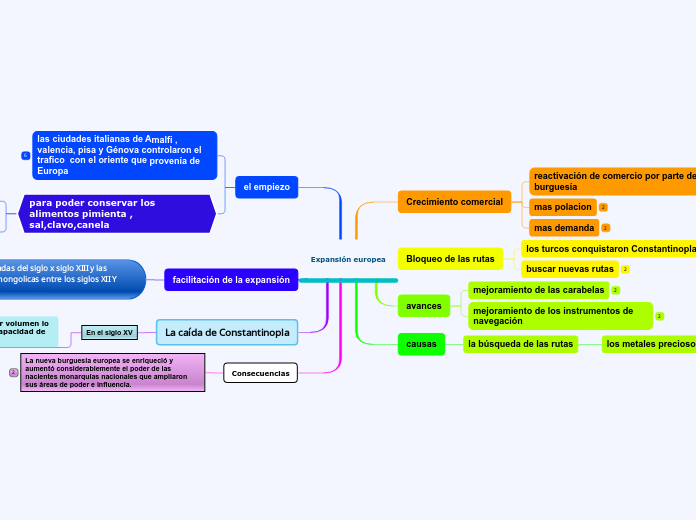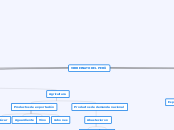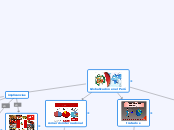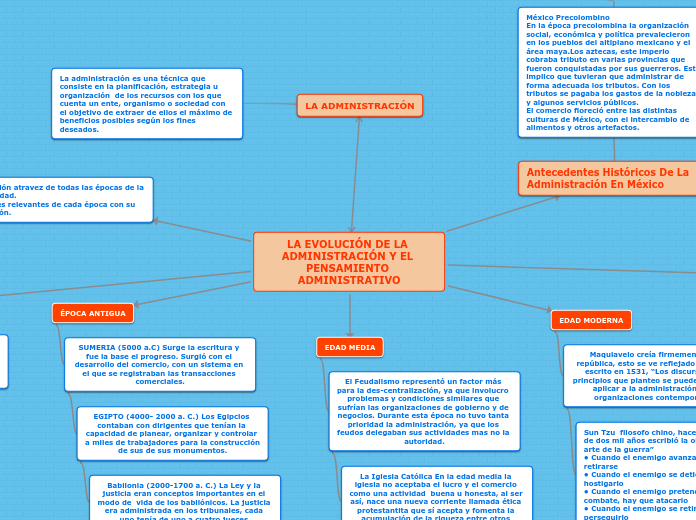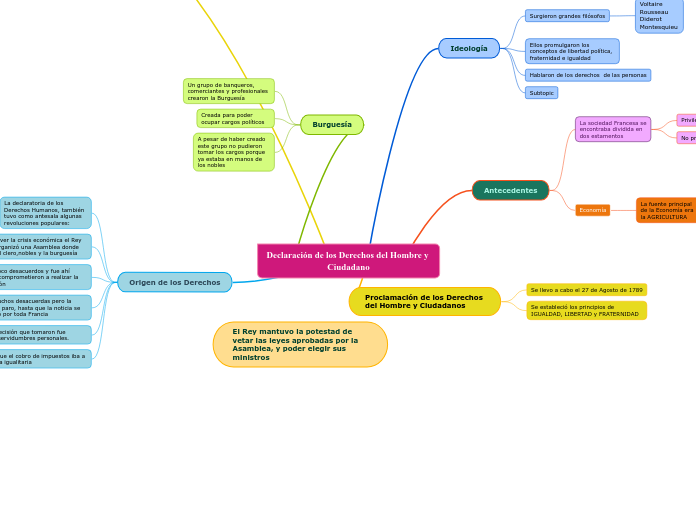Expansión europea
The part of speech is a category to which a word is assigned according to its syntactic functions. In English the main parts of speech are noun, pronoun, adjective, determiner, verb, adverb, preposition, conjunction, and interjection.
Consecuencias
A preposition is one of the most exciting parts of grammar. A preposition is used to describe the location of something in relation to something else.
La nueva burguesía europea se enriqueció y aumentó considerablemente el poder de las nacientes monarquías nacionales que ampliaron sus áreas de poder e influencia.
When a preposition consists of one word it is called single or simple preposition.
in, at, on, to for, of, from, up, after, over, under, with, etc.
La caída de Constantinopla
An interjection is used to express emotion in a sentence.
Think of other interjections!
En el siglo XV
nave con mas velamen y mayor volumen lo que le dio mayor velocidad y capacidad de carga.
facilitación de la expansión
An adverb is used to describe a verb, but it can also describe an adjective or another adverb.
Adverbs normally help paint a fuller picture by describing how something happens.
fue las cruzadas del siglo x siglo XIII y las invaciones mongolicas entre los siglos XII Y XIV
favoreció notablemente el comercio entre Oriente y Occidente impulsado desde Venecia y Génova que lograron instalar dominios coloniales en Asia y Africa.
el empiezo
A numeral is a word or phrase that describes a numerical quantity.
Some theories of grammar use the word 'numeral' to refer to cardinal numbers that act as a determiner to specify the quantity of a noun, for example the 'two' in 'two hats'.
para poder conservar los alimentos pimienta , sal,clavo,canela
por el uso de la brújula las tablas
las ciudades se fueron perfeccionando las técnicas
las ciudades italianas de Amalfi , valencia, pisa y Génova controlaron el trafico con el oriente que provenía de Europa
Las ciudades italianas de las Amalfi, Venecia, Pisa y Génova asimilaron la experiencia náutica de la antigüedad latina.
First, second..
causas
A pronoun is a word that can be used in place of a noun, typically after the noun itself has already been stated.
la búsqueda de las rutas
Unlike demonstrative pronouns, which point out specific items, indefinite pronouns are used for non-specific things. This is the largest group of pronouns. All, some, any, several, anyone, nobody, each, both, few, either, none, one, and no one are the most common.
los metales preciosos como plata y oro
avances
An adjective is a word that's used to describe a specific noun and to provide more detail to the listener.
mejoramiento de los instrumentos de navegación
Superlative adjectives demonstrate a higher level of comparison between entities.
She is the prettiest princess.
mejoramiento de las carabelas
Expresses a comparison between two entities or groups of entities in quality or degree.
He is taller than she is.
Bloqueo de las rutas
A noun is defined as a person, place, thing or idea. Proper nouns always begin with a capital letter. Common nouns, which are general words, such as 'cars,' are not capitalized.
buscar nuevas rutas
Countable nouns are nouns that can be counted, even if the number might be extraordinarily high.
Uncountable nouns are nouns that come in a state or quantity which is impossible to count; liquids are uncountable, as are things which act
like liquids.
Cats, Rain
los turcos conquistaron Constantinopla
Proper nouns are the names of specific people or places. They should always begin with a capital letter.
Mary, Paris
Crecimiento comercial
A verb is an action word or 'doing' word that signifies movement in some way.
mas demanda
A modal is a type of auxiliary (helping) verb that is used to express: ability, possibility, permission or obligation. The main modal verbs in the English language are: can, could, may, might, must, shall, should, will, would.
I might go to the park if I get my homework done.
mas polacion
A linking verb connects the subject with a word that gives information about the subject, such as a condition or relationship.
You look exhausted after studying all night.
reactivación de comercio por parte de la burguesía
A verb with its own meaning: a verb that is not an auxiliary verb.
Create sentences
They have it.
